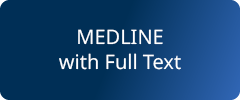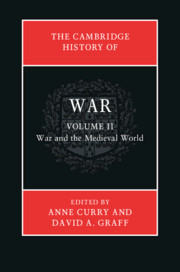
Library Renovation Updates

Small study rooms are now open!
The two small study rooms off the ground floor lobby are now furnished and available for use. No reservations are required at present—if a room is vacant, it’s yours. Please do not leave your things in the rooms to hold them for later. Any unattended belongs left for more than 20-30 minutes will be removed to make the rooms available for others.
Ongoing progress
Work continues in the 1st floor stacks. The workmen are now installing new lights, and new carpeting comes next. Since this area remains under construction, continue to use the 1st floor stacks book paging form to request books from this floor; these are being brought out for requesters several times a day.
Work has also picked up in the enclosure that will be the new staircase between the main lobby and the new reference room on the ground floor. The giant steel stair pieces were dropped into place last week.

The echo chamber
You may have noticed that the Large Reference Room is a little louder than it used to be. The ceiling panels in the room previously absorbed a lot of sound, but these have been removed during the renovation. Sound now echoes around the room and into adjoining spaces. Please try to keep conversations low to keep the general noise down.
The little things you’ve been missing
Permanent trash cans are now in place on the ground floor. There is one in the outer hallway and one inside the library near the metal stacks stairs. The library is excited to offer recycling for paper and bottles/cans finally!
There are again two operational pencil sharpeners in the library. You will find one in the Small Reference Room on the atlas case and the other in the 2nd floor stacks (hanging on the side of the stacks by call number PA).
Here are some of the most-used resources from the library last school year!
Discovery is the premiere search tool for GCC researchers. It fielded over 113,000 searches last year and got you to the resources you needed by searching across our subscribed databases, our eBooks, and our physical library collections.

This set was the most-used work in the print collection last year. These 13 volumes are so heavily used that the library has 2-3 copies of each. Its lifetime circulations number over 1300!
The expositor's Bible commentary / General editors: Tremper Longman III and David E. Garland. Rev. ed. Grand Rapids, Mich. : Zondervan, 2006-2012. Buhl - Open Stacks and Reference : BS491.3 .E96 2006
You sat down over 11,000 times last year to engage with Henry, the library's online catalog, where you searched for books, DVDs, and other resources. That's not all. You also saved your results lists, renewed your books, and kept tabs on your check-outs by viewing your personal library account page, all from Henry.

The mission of the weekly online journal Nature is "to serve scientists through prompt publication of significant advances in any branch of science, and to provide a forum for the reporting and discussion of news and issues concerning science". We value that at GCC, as this was our top-used eJournal last year! Science was a very close second.

Out of the thousands of items added to the Buhl shelves last year, this one was far and away the most circulated. It spent one semester on reserve. That'll do it!
Youth ministry management tools 2.0 : everything you need to successfully manage your ministry / Mike Work, Ginny Olson. Grand Rapids, Michigan : Zondervan : Youth Specialties, [2014] Buhl - Open Stacks : BV4447 .W6685 2014
Of the 100K+ eBooks we can access on the EBSCO eBooks platform, The Dictionary of Biblical Imagery was our top-used eBook. We also have this title available in the Small Reference Room, so it's great to see the online version getting so much use. After all, you can access it anytime, anywhere, and you don't have to wait until the other kid in your class is done using the print copy.
The Naxos Music Library and Jazz collection provided the soundtrack of last year. We streamed over 40K music clips from this subscribed library database! A lot of those were for classes, but assuredly a lot of them were not. This collection offers millions of classical music and jazz tracks, with hundreds of new recordings added each month.

Our number one database last year was JSTOR. This enormous collection of journal articles, books, and primary sources has content for just about every discipline, and while their content is often historic (that is, not current publications), during the pandemic JSTOR was one of many providers opening up their full collections to support researchers cut off from physical libraries. The GCC community definitely took advantage, accessing JSTOR resources more than ever before!

Landmark Briefs
Did you wonder what all those red books are down in the new quiet study area on the lower level? There are so many of them, and you’ve never seen them around before!
These are volumes of the series Landmark briefs and arguments of the Supreme Court of the United States, which were in storage but now finally have a place in the newly redesigned library. This series contains petitions and briefs filed in major constitutional law cases. A court case that is studied because it has historical and legal significance is considered to be a “landmark” case. Our set has coverage from 1793 to 2015 and so includes such landmark cases as Dred Scott v. Sandford (1857), Brown v. Board of Education (1954,1955), Miranda v. Arizona (1966), and Roe v. Wade (1973)
“A law repugnant to the Constitution is void.”
With these words, Chief Justice John Marshall established the Supreme Court’s role in the new government. Hereafter, the Court was recognized as having the power to review all acts of Congress where constitutionality was at issue, and judge whether they abide by the Constitution.
Choosing a Paper Topic
When it comes to writing research papers, sometimes the first step is the hardest! Here are some quick tips to help you find a successful topic.
For additional help, visit the guide below.
Professor Ryan West has contributed to the new Oxford University Press publication Faith and Virtue Formation : Christian Philosophy in Aid of Becoming Good (2021). Be sure to check out his chapter entitled "Willpower and the Cultivation of Virtues".
Buhl - Open Stacks : BV4630 .F25 2021

Discovery vs. Henry - Getting to know the library’s search tools
There are two great tools available to help you find the resources you need in the library collection. Which should you use when?
Discovery
Discovery allows you to search across most of the library’s resources, both what’s on the shelves and what’s in our online databases. It’s like Google for the library.
Pros
Cons
Best for when you are
Access Discovery through the search box in the middle of the library home page.
Henry
Henry is our traditional library catalog, focusing on the library’s physical collection of books, DVDs, journal titles, etc. It also includes many eBooks that are part of our permanent online collection.
Pros
Cons
Best for when you are
Access Henry from the “Books (Library Catalog)” link under “Find” on the library home page.
Featured Database

MEDLINE with Full Text is a valuable tool for medical research, providing full-text access to articles from over 600 active subscription-only medical journals. This database offers the very latest in research--some articles are available here even before they are published in print! If you are studying or researching topics in medicine, nursing, dentistry, veterinary medicine, or health care administration, this database is a good one to know.
You can search the contents of MEDLINE with Full Text through Discovery, but in some cases you may prefer to search directly in the MEDLINE database in order to use its specialized search features that are designed specifically for medical research. For example, you can focus your searches on just evidence-based medicine or review articles. You can also limit searches by age group, gender, or animal if searching for non-human topics. Please see the attached flyer for more information on using MEDLINE with Full Text.
What's New?
Here is a sampling of new resources in Buhl Library. Be sure to also check out the new book display in the library lobby.
Hover over a book's title to view a summary.
 The Cambridge History of War. Volume 2, War and the Medieval world by
The Cambridge History of War. Volume 2, War and the Medieval world by  When the game stands tall
When the game stands tallContact Us

Email: refdesk@gcc.edu | Phone: 724-264-4729 | Website: hbl.gcc.edu